New Scientist covers the latest developments in science and technology that will impact your world. New Scientist employs and commissions the best writers in their fields from all over the world. Our editorial team provide cutting-edge news, award-winning features and reports, written in concise and clear language that puts discoveries and advances in the context of everyday life today and in the future.
The curse of knowledge • Commercial health tests promise peace of mind, but do they really deliver?
New Scientist Australian Edition
From spelunking to the stars
Has Antarctic crossed tipping point? • We are beginning to understand the loss of sea ice in Antarctica – and it could represent a permanent shift with potentially catastrophic consequences, discovers Madeleine Cuff
Egg cells made with DNA from human skin fertilised in the lab
NASA’s asteroid deflection test had a puzzling outcome
How do your feelings of happiness vary as you grow older?
Happiness declines slowly, then all at once • Happiness, as measured on a scale from 0 to 10, declines as we grow older, with a rapid drop-off past the age of 64
Birds may share universal warning call • Several species of bird from different continents use and understand each other’s anti-cuckoo calls, a discovery that may tell us more about the origins of language, explains Chris Simms
Shackleton’s ship was doomed before it even set sail
Cannabis extract offers alternative back pain treatment
Autism may have different subtypes • DNA analysis suggests autism exists in a variety of forms that are diagnosed at different ages
Ravenous rogue planet rampages through space
Should we worry AI will create deadly bioweapons? Not yet, but one day • AI tools are being used to design proteins and viruses, but rising fears over them enabling bioweapon attacks may be misplaced, finds Michael Le Page
We’ve solved the mystery of highly reactive oxygen
Evolution could hold the key to women’s longevity
Life-sized camel carvings • Almost 200 prehistoric engravings have been found in Saudi Arabia
Uncovering the ins and outs of belly buttons
Music is instrumental in learning how to read
We may know what causes will-o’-the-wisps
Our brain ‘swivels’ in search of sounds • Human ears no longer pivot towards certain noises, but our brains may do something similar
A black hole jet has been captured in incredible new detail
How Jane Goodall changed the way we see animals – and the world • The conservationist and primatologist, who chronicled the social lives of chimps, leaves a lasting legacy on how we view the natural world, says Rowan Hooper
A slice of sense on UPFs • Not all ultra-processed foods are bad for us – regulation and eating advice must reflect this, say Julia Belluz and Kevin Hall
No planet B • Pie in the sky A conspiracy theory that bad actors use contrails from aircraft to poison us distracts from the very real effects of aviation on the climate, says Graham Lawton
What we lose • Wildlife Photographer of the Year Natural History Museum, London
On Earth’s foundations • A personal odyssey through aeons of our planet’s geology offers a passionate mix of science and spirituality, finds Dhruti Shah
Burning questions • Hannah Ritchie answers key climate queries in her optimistic, data-led guide to reaching net zero, says Madeleine Cuff
New Scientist recommends
The film column • The outer fringes Blue Planet Red promotes the baseless idea that Mars was once inhabited by an advanced civilisation. But in documenting a generation of otherwise sensible researchers, it is inadvertently poignant, says Simon Ings
Your letters
Dementia decoded...

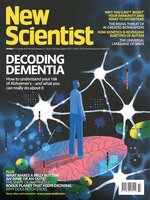 Oct 11 2025
Oct 11 2025
 Oct 04 2025
Oct 04 2025
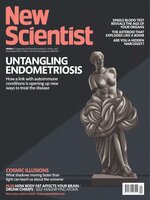 Sep 27 2025
Sep 27 2025
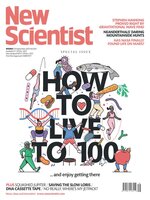 Sep 20 2025
Sep 20 2025
 Sep 13 2025
Sep 13 2025
 Sep 06 2025
Sep 06 2025
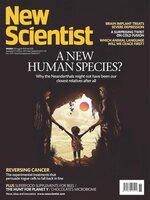 Aug 30 2025
Aug 30 2025
 Aug 23 2025
Aug 23 2025
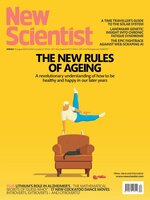 Aug 16 2025
Aug 16 2025
 Aug 09 2025
Aug 09 2025
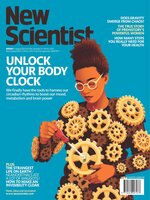 Aug 02 2025
Aug 02 2025
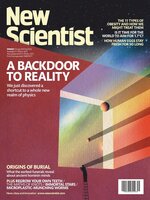 Jul 26 2025
Jul 26 2025
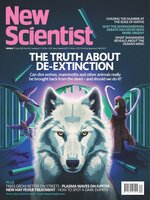 Jul 19 2025
Jul 19 2025
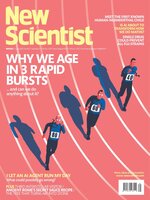 Jul 12 2025
Jul 12 2025
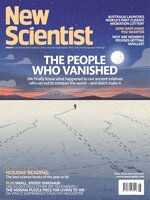 Jul 05 2025
Jul 05 2025
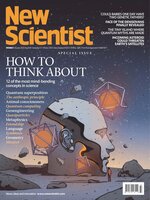 Jun 28 2025
Jun 28 2025
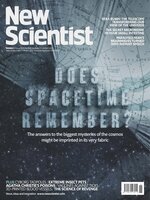 Jun 21 2025
Jun 21 2025
 Jun 14 2025
Jun 14 2025
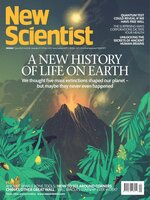 Jun 07 2025
Jun 07 2025
 May 31 2025
May 31 2025
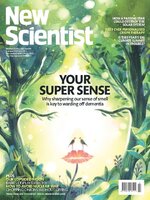 May 24 2025
May 24 2025
 May 17 2025
May 17 2025
 May 10 2025
May 10 2025
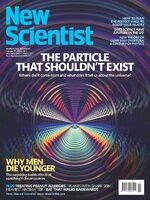 May 03 2025
May 03 2025